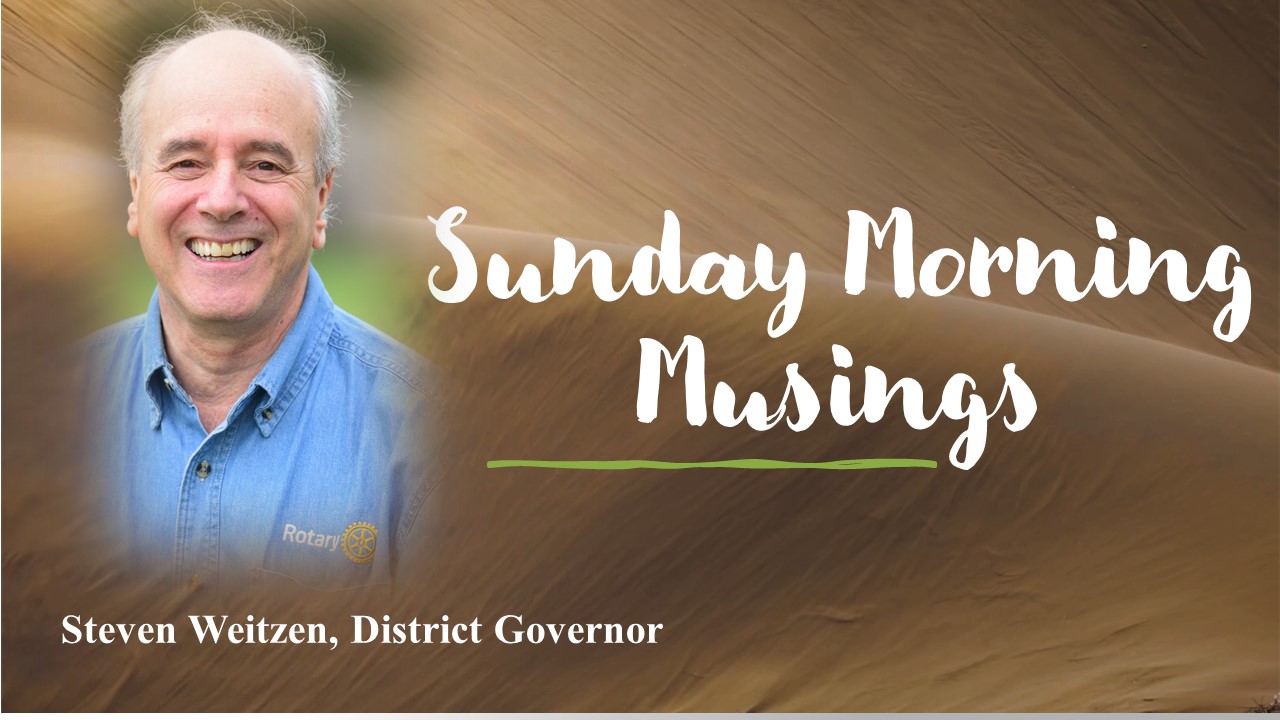
The Need to Serve
In 1943 Abraham Maslow wrote a paper entitled: “A Theory of Human Motivation.”
The paper explored in a pyramid fashion how one moves from the lowest level of the pyramid up to the highest of five levels. As one achieves and becomes satisfied at one level, they are then motivated to move on to the next level. And so on.
The lowest level of the pyramid is physiological needs. These include things that are essential for survival. Such as food, water, warmth, rest and breathing. Once those needs are met, one is ready to move up the pyramid to the next level.
The next level is safety and security needs. Here, people need to feel secure in their life and surroundings. People want control and order in their lives. This becomes primary for people at this level. Some examples include: financial security, health and wellness, safety against accidents and injury, finding a job, obtaining healthcare, and, perhaps, moving to a safer neighborhood.
Having satisfied safety and security needs, one moves on to the next level of love and belonging needs. We are social creatures that crave interaction with others. This need is what drives human behavior. Some of the things found at this level are friendships, family, social groups, community groups and religious organizations.
Attaining the fourth level in Maslow’s hierarchy one finds the need for appreciation and respect. When the needs at the bottom three levels have been satisfied, the esteem needs begin to play a more prominent role in motivating behavior. Here, it becomes important to gain the respect and appreciation of others. People need to sense that they are valued by others and feel that they are making a contribution to the world. Participation in professional activities, academic accomplishments and personal hobbies can all play a role in fulfilling the esteem needs.
At the top of Maslow’s hierarchy are the self-actualization needs. People have a desire to achieve their full potential as human beings. Self-actualized people are concerned with personal growth and less concerned with the opinions of others. They are self-aware and focused on personal growth by fulfilling their potential.
So, how does this relate to Rotary? At each point along the way Rotary is there and plays a role for all of us - for all concerned.
At the lowest level, the physiological needs of food, water, warmth, rest and breathing, Rotary - specifically Rotarians - helps meet the needs of those without. Providing clean water and clean latrines; vaccinating infants to prevent polio; malaria nets to allow people sleep without fear of disease; solar cookers to make healthy meals are just some of the ways Rotarians are reaching those yearning to have their basic needs met in underserved parts of our community and world. For the Rotarian, this is the essence of Service Above Self. Doing something for the other.
At the next level, safety and security includes financial security, health and wellness. Rotary provides microcredits, particularly for women. Microcredit programs are committed to providing credit to the poorest of the poor throughout the world. This includes the poorest 20% of the population that shares 1.4% of the world's income. These women are entrepreneurs who create and start their own businesses. Not only do they serve others in the community, but they are excellent credit risks paying back what they borrowed.
Why are women targeted for microcredits and not men? Because 92% of a woman's income will be reinvested in food, shelter and education for her family. In many regions, only about 40-50% of a man's earnings will reach his family and often as little as 10%. For about the past ten years, our District has been involved in using microcredits to help women and their families get on their feet to provide a better future.
The next level is where love and belonging, friendships, family, social groups and community organizations are found. Well, doesn’t being a member of a Rotary club fill that need? We all want to belong. Every time I go to a club, I hear members describe the club as “my family.” We celebrate happy occasions where “happy dollars/bucks” are donated to help others. We grieve together when loved ones and fellow Rotarians pass. The fellowship and friendships we develop in Rotary binds us together as our own tribe. We are committed to each other and those we serve at the needs levels below.
At Maslow’s fourth level of needs we find it becomes important to sense we are valued and that we are making a contribution to the world. Isn’t that what we do every week in our clubs? Rotarians are a solution in search of a challenge. Each we discuss ways and means to help people here at home and around the world. We have made connections with people in other countries. When there was a plea for help in India, Haiti, Mexico or Africa, we were there. I know someone who knows someone who knows someone who needs help. We answer the call. This is just one of many ways that people of action respond. We are Rotary.
We now come to the peak of the pyramid - self-actualization. Self-actualized people are concerned with personal growth and focused on fulfilling their potential. Isn’t that a byproduct of being in Rotary? At its core, Rotarians are leaders. We continue to educate ourselves in leadership, responsibilities to others and our planet. By being and doing Rotary, we are on a path to fulfilling our potential. And, at the end of the day, as Maslow would argue, that is what life is about.
Like you, I am proud to be a Rotarian.